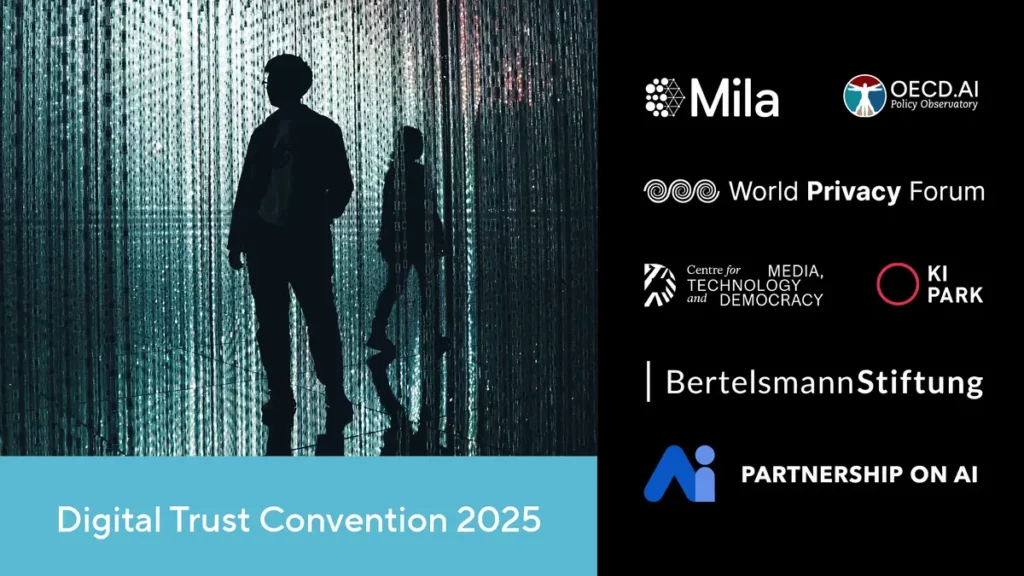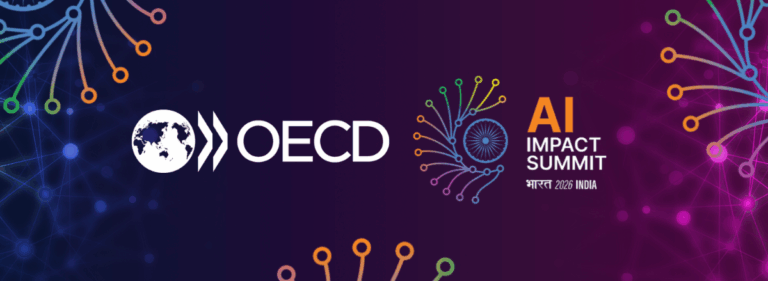Rebuilding digital trust in the age of AI

Artificial intelligence is reshaping how we communicate, learn, and make sense of the world. As generative models become part of everyday systems, they put questions of trust, authenticity and accountability at the centre of digital governance.
>> REGISTER FOR THE DIGITAL TRUST CONVENTION 2025 <<
Generative AI and the rise of synthetic manipulation
Technological progress has a direct effect on the social systems that sustain it. This is particularly true when bad actors misuse generative AI – be they commercially, criminally or geostrategically motivated. Since the broad availability of deepfake tools in 2018, and even more so since GPT-3 went mainstream in 2022, the fabrication of fakes is now scalable beyond imagination. By combining these AI tools, bad actors can create real bots at scale and deploy them as fake commenters, influencers, reporters, and experts, thereby distorting democratic discourse and markets.
The OECD has arguably been the first IGO to recognise the extent of this disruption and to explore foundational ways not only to counter it but also to shift the dynamic by making the digital space more resilient. The OECD ministerial meeting in December 2022 dedicated a session to this topic, which led to the OECD and partners building a coalition for a Global Challenge ( https://oecd.ai/en/wonk/global-challenge-partners ).
In 2024, the OECD hosted the first Digital Trust Convention at its headquarters in Paris. It gathered researchers, civil society advocates, policymakers and technologists to reflect on how to foster truth and accountability in digital spaces. In November 2025, that conversation will continue in Montréal, at Mila, Quebec’s leading institute for artificial intelligence.
Over the past year, what is at stake has become clearer. The rapid advance of generative AI has transformed how knowledge is created and circulates. Synthetic content can now be produced, replicated, and distributed at a pace that tests the foundations of a shared reality. What was once a slow erosion of trust has now accelerated. Yet even within this turbulence lies a possibility for renewal. The same technologies that blur the boundary between the real and the fabricated might also help us rebuild the conditions of authenticity, coherence and responsibility.
Digital Trust Convention 2025: key questions and themes
The Digital Trust Convention 2025 will bring together people working at the forefront of these issues. Over two days, participants will ask how societies can recognise real human presence in digital systems without compromising privacy; how information can remain credible in automated environments; and what kinds of governance and incentive structures might allow for more open, constructive and plural forms of discourse. Of course, these questions are not confined to a single discipline, which is why it is so crucial to bring together speakers whose work spans AI research, policy and governance, social science, and digital ethics.
The programme is designed to initiate dialogue and reflection, daring to imagine and shape a positive future. The first day will trace the reasons why digital trust has eroded, from technical vulnerabilities to structural incentives. The second will turn towards possibility, identifying levers of change and examples of renewal, before concluding with a shared discussion on the idea of a Montreal Manifesto for digital trust and the next phase of the Digital Trust Challenge.
At its core, the Digital Trust Convention is an attempt to connect research, policy, and practice to renew coherence at a time when it feels precarious. Trust is not a given state but a collective achievement, built through the norms we uphold and the systems we design that uphold them. Rebuilding it will require attention, cooperation and imagination. This is the slow work of aligning technical possibility with human purpose.
Join the global effort for responsible innovation
The Digital Trust Convention 2025, co-organised with the OECD and hosted by Mila, is part of that wider effort. It asks what kind of digital future we are willing to build, and how we can ensure that innovation and trust evolve together rather than apart. The event takes place on 6–7 November 2025 at Mila in Montréal. Registration is now open, and places are limited. Register here.


































